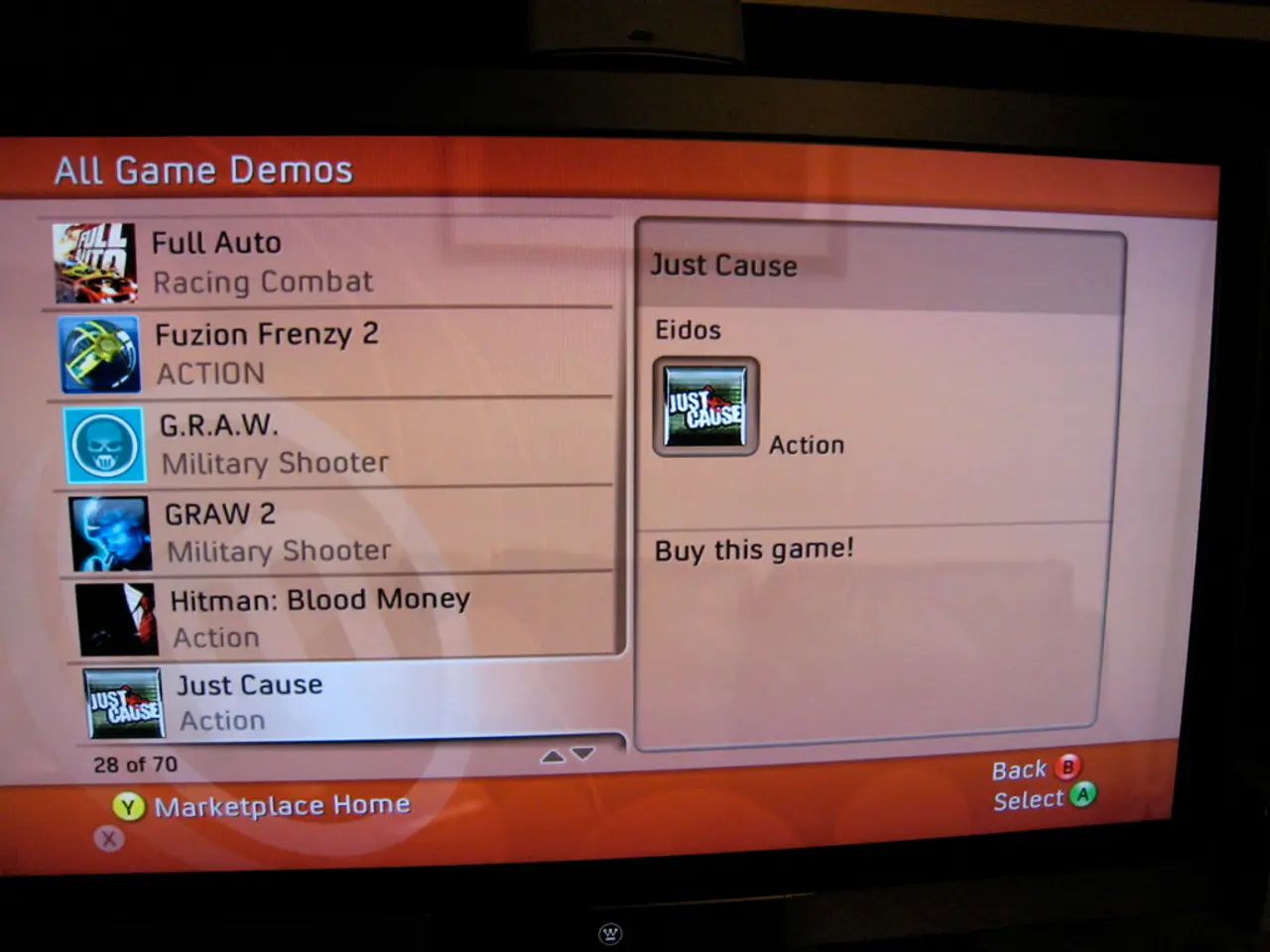Exploring Game Boy Emulation on iPhone: A Comprehensive Look at Catch 'Em All
In the ever-evolving world of mobile gaming, a significant milestone has been reached with smartphones now able to emulate classic consoles such as the Game Boy. One such emulator that has gained popularity is Delta, available for download on the App Store.
Developed by Riley Testut, Delta offers customization options for display, controls, and save states, enhancing the gaming experience. It supports multiple consoles, including Game Boy, Game Boy Color, Game Boy Advance, Nintendo 64, and Nintendo DS.
While the emulator itself is legal to download and use on iOS, the use of ROMs (game files) is a complex and legally sensitive issue. ROMs are copies of game data, and downloading or sharing ROMs of games you do not own is considered copyright infringement and is illegal in most jurisdictions, including the U.S.
However, there exists a potential fair use argument for creating or using ROMs if you own the original physical game. This theoretical allowance has never been definitively tested or upheld in court and is strongly disputed by companies like Nintendo.
To legally obtain ROMs, options include ripping from original cartridges using specialized hardware or purchasing from legitimate sources. Once downloaded, users can import ROM files into Delta by locating the "+" icon in the app interface and selecting the ROM file from the iPhone's storage.
Transferring ROM files to an iPhone can be achieved using cloud storage services like Google Drive, Dropbox, or iCloud, or by connecting the iPhone to a computer and using iTunes or Finder.
It's worth noting that the use of ROMs is the main legal risk in the emulation ecosystem on iOS rather than the emulator software itself. This legal separation means that users who wish to stay within legal boundaries should only use ROMs they have legally obtained by dumping from games they own.
The ability to play Game Boy games on iPhones marks a significant step forward in the evolution of mobile gaming. This development follows Apple's recent shift in App Store guidelines, which has opened opportunities for retro game emulation.
In the past, Riley Testut gained popularity for creating GBA4iOS, an emulator to sideload Game Boy Advance games onto iPhones. However, Apple shut down GBA4iOS due to its stringent App Store policies. Nevertheless, the success of Delta, with millions of downloads and topping the App Store charts, demonstrates the demand for such emulators.
Moreover, ROM hacking communities offer modifications to existing ROMs, creating new gaming experiences. As technology advances, more sophisticated and versatile emulation solutions are expected, offering exciting prospects for mobile gaming enthusiasts.
[1] Legal Disclaimer: The information provided in this article is for educational purposes only and should not be construed as legal advice. For specific legal advice, consult a qualified attorney. [2] Legal Disclaimer: The information provided in this article is based on available data at the time of writing and may be subject to change. Always verify the legality of your actions regarding ROMs in your jurisdiction. [3] Legal Disclaimer: The information provided in this article does not condone or promote piracy or copyright infringement. Always obtain ROMs legally.
- Riley Testut, the developer of Delta, a popular emulator for iOS, has also previously gained recognition for creating GBA4iOS, an emulator for Game Boy Advance games.
- The success ofDelta, with millions of downloads and topping the App Store charts, shows the demand for gaming emulators like this on iOS devices.
- As technology continues to progress, more intricate and adaptable emulation solutions are anticipated, providing thrilling possibilities for mobile gaming devotees.
- Artificial intelligence (AI) might also play a role in the future of mobile gaming, as AI could potentially enhance gameplay and create more immersive virtual gaming experiences.
- Gadget enthusiasts are constantly on the lookout for the latest smartphone innovations, and with the rising popularity of mobile gaming, advancements in hardware capabilities will be crucial to maintaining immersive, high-quality gaming experiences.




